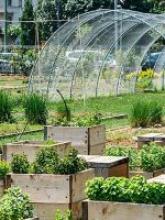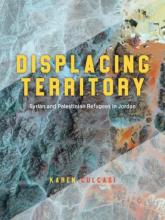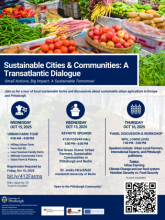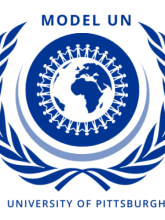Upcoming Events

- Eda Kurtsoy
- 8:00 pm to 9:00 pm
- Global Hub

- 9:00 am to 4:00 pm
- Various

- Drs. Karen Culcasi, Michael Glass and Robert Ross
- 1:00 pm
- 4130 WWPH
Displacement disrupts our understandings of borders, identity, and home. We invite you to a dynamic, faculty-led roundtable that explores the pressing and complex themes of displacement, territoriality, and belonging through a multidisciplinary lens. Drawing on the lived experiences of Palestinian and Syrian refugees in Jordan, this discussion will delve into how these realities challenge traditional frameworks and open new avenues for research and teaching.
Together, we’ll critically examine the varied roles and responsibilities of the Global North and South in addressing the ongoing refugee crisis. The roundtable will also spotlight a range of innovative research methodologies for engaging with transnational, interdisciplinary issues.
Faculty participants will receive a complimentary copy of Displacing Territory: Syrian and Palestinian Refugees in Jordan.
Register Here:https://docs.google.com/forms/d/e/1FAIpQLSfqum4WVIt0eVH8PjsM9RYc0ztFJyMg...

- Dr. Jesko Hirschfeld, Humboldt University of Berlin
- 5:00 pm to 6:00 pm
- 4130 Posvar Hall
This event is part of a two-day series focusing on sustainability in Europe and Pittsburgh.
About the Keynote Speaker:
Jesko Hirschfeld studied economics at the universities of Bonn, Frankfurt am Main, and the Free University of Berlin. From 1996 to 1998, he worked as a scientific staff member for the German Federal Parliament (Bundestag), and from 1998 to 2002, he worked on his doctorate with a scholarship by the German Research Foundation (DFG) in the Research Training Group “Agriculture and Environment” at the University of Göttingen. Since 2002, he has been a research associate and later subject area manager for water and land management at the Institute for Ecological Economy Research (IÖW) in Berlin in the research field “Environmental Economics and Policy.” From 2017 to 2020, in addition to his work at the IÖW, he was a visiting professor for landscape economics at the Technical University of Berlin. From 2022 to 2024, he taught as a visiting professor of environmental economics at Humboldt University in Berlin. He has worked on numerous inter- and transdisciplinary projects on natural climate protection, nature-based adaptation to climate change, land and water use, and integrated coastal zone management, focusing primarily on economic aspects and ecological-economic assessments. In recent years, he has focused on urban ecosystem services provided by urban green spaces, parks, and gardens.

- Dr. Karen Culcasi, Michael-Ann Cerniglia
- 6:00 pm to 7:30 pm
- 4130 Posvar Hall and via Zoom
Join the Global Studies Center on Wednesday, October 15 from 6:00-7:30 PM ET in 4130 or via Zoom for a presentation by Dr. Karen Culcasi on her book, Displacing Territory: Syrian and Palestinian Refugees in Jordan. Curriculum strategies and resources for K-12 classroom use will also be shared. A limited number of books will be mailed to registrants in advance of the workshop.

- Eda Kurtsoy
- 8:00 pm to 9:00 pm
- Global Hub

- Various
- 1:00 pm to 3:00 pm
- WPU, Lower Lounge
Final Event of this two-day event
Part I: Panel Discussion
Moderator: Randall Halle, European Studies Center
Panelists:
Dr. Patrick Shirey — Geology and Environmental Science, University of Pittsburgh
Lisa Freeman — Freeman and Family Farm
State Representative Emily Kinkead, PA House District 20, Chair of the Legislative Hunger Caucus
Dr. Jesko Hirschfeld — Humboldt University of Berlin
Part II: Breakout / Discussion Groups
Group A: Urban Farming Challenges and Opportunities
Group B: Climate resilience strategies in cities
Group C: Ensuring nutrition security for vulnerable populations
**Lunch will be provided

- 1:30 pm to 3:00 pm
- 4217 Posvar Hall or via Zoom
The Global Appalachia Reading Group examines the complex intersections of regional identity, global influence, and environmental justice as they pertain to Appalachia and its connections to the wider world. The Fall 2026 theme is "Place."
Session 1 Book, September 17, 2025: Appalachia in Regional Context: Place Matters, edited by Dwight B. Billings and Ann E. Kingsolver
Session 2 Book, October 22, 2025: Affrilachia by Frank X. Walker
Session 3 Book, November 19, 2025: Making Our Future: Visionary Folklore and Everyday Culture in Appalachia by Emily Hilliard
Copies of the books will be available for those planning to attend the event. Please stop by the Global Studies Center (4100 Posvar Hall) to pick up your copy. If you need the books shipped, that can be arranged.
Note: We are able to fund and distribute books to registrants as funding allows. Registration will remain open after this amount is reached. Registrants will be notified if we are unable to provide them with the reading material.

- Vibha
- 5:00 pm to 6:00 pm
- Global Hub

- 6:00 pm to 7:30 pm
- via Zoom
This professional development workshop series is designed for K-12 educators seeking to deepen their understanding of global issues through literature. This year, we will explore the theme of “The U.S. in the World.” Through global and regional perspectives, we will discuss narratives of a “Global United States,” where the U.S. role in the world and its relationship with other countries and regions is informed by transnational narratives and dialogues shaped by global trends such as migration, environmental issues, human rights, and human conditions. By exploring compelling stories from diverse cultural perspectives, educators will gain insights into the complexities of this theme, its impact on individuals and communities, and how to engage students in meaningful discussions around these topics.
Each session features a carefully selected book, paired with historically contextualized presentations, interactive discussions, teaching strategies, and cross-disciplinary activities to inspire classroom implementation.
Sessions this year will take place virtually on Thursday evenings from 6:00-7:30 p.m. (ET). Three Act 48 credit hours (for PA educators) and a copy of the book are provided for each session.
The October 23 workshop will focus on the book, "Ashes of Rose," by Mary Jane Auch.
For more information and to register, please go to: https://www.ucis.pitt.edu/global/GILS

- 8:00 am to 4:00 pm
- William Pitt Union and O'Hara Student Center, Pitt-Oakland Campus Model United Nations high school simulation

- Eda Kurtsoy
- 8:00 pm to 9:00 pm
- Global Hub

- 8:00 am to 4:00 pm
- William Pitt Union simulation, European Union
The High School Model European Union is an annual event for area high school students. The goal of the Model EU is to give high school students a chance to learn about the workings of the European Union through a hands-on simulation. Playing the roles of presidents and prime ministers, students spend a day engaged in intense negotiations over conflicting issues about the EU. The objective is to simulate a specific European Council meeting that focuses on recent current events impacting the EU. Model EU enhances students’ understanding of classroom learning and gives them a real sense of the challenges involved in the decision-making process of the European Union.

- 1:30 pm to 3:00 pm
- 4217 Posvar Hall or via Zoom
The Global Appalachia Reading Group examines the complex intersections of regional identity, global influence, and environmental justice as they pertain to Appalachia and its connections to the wider world. The Fall 2026 theme is "Place."
Session 1 Book, September 17, 2025: Appalachia in Regional Context: Place Matters, edited by Dwight B. Billings and Ann E. Kingsolver
Session 2 Book, October 22, 2025: Affrilachia by Frank X. Walker
Session 3 Book, November 19, 2025: Making Our Future: Visionary Folklore and Everyday Culture in Appalachia by Emily Hilliard
Copies of the books will be available for those planning to attend the event. Please stop by the Global Studies Center (4100 Posvar Hall) to pick up your copy. If you need the books shipped, that can be arranged.
Note: We are able to fund and distribute books to registrants as funding allows. Registration will remain open after this amount is reached. Registrants will be notified if we are unable to provide them with the reading material.

- Vibha Shetiya
- 5:00 pm to 6:00 pm
- Global Hub
- 1 of 2
- next ›
